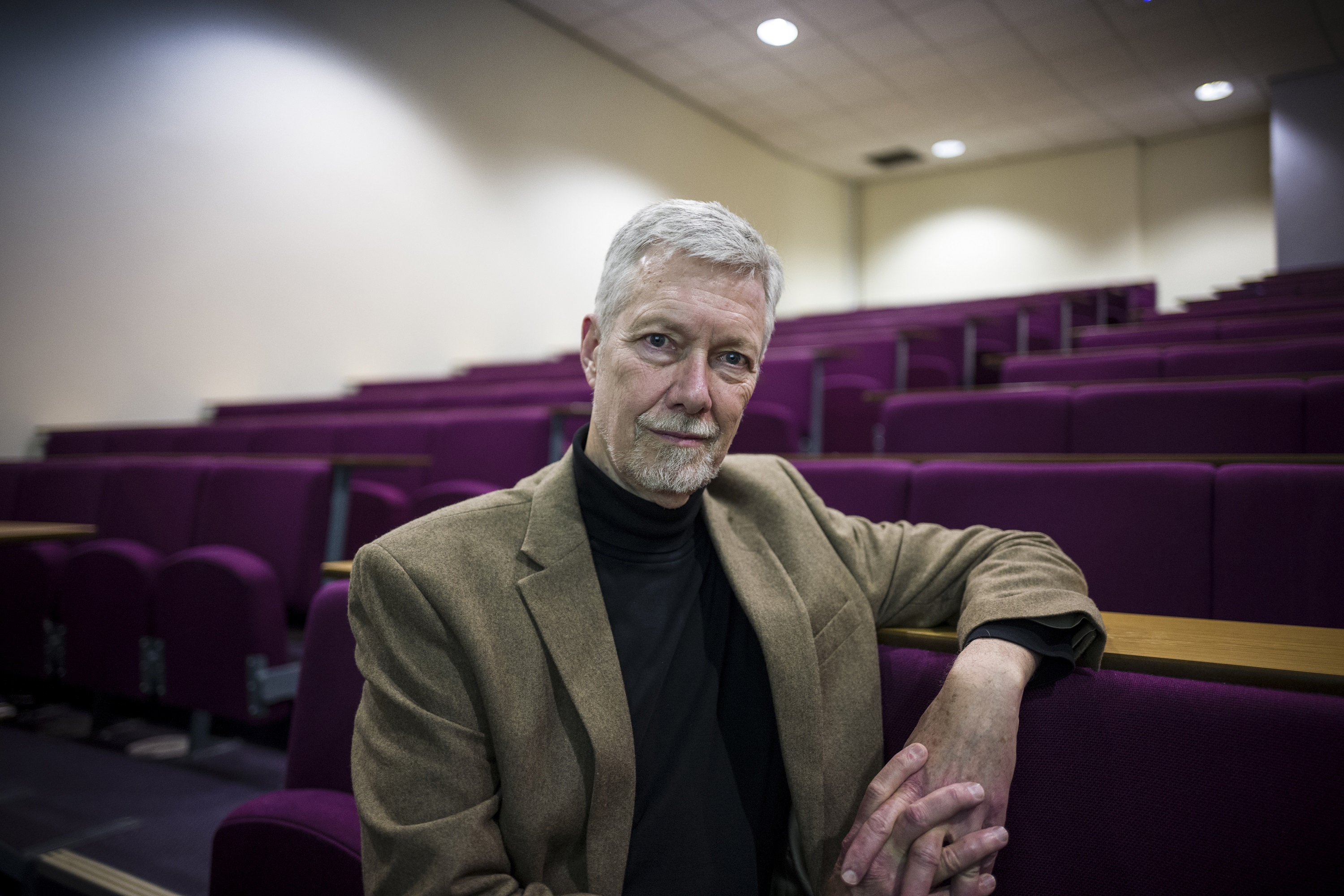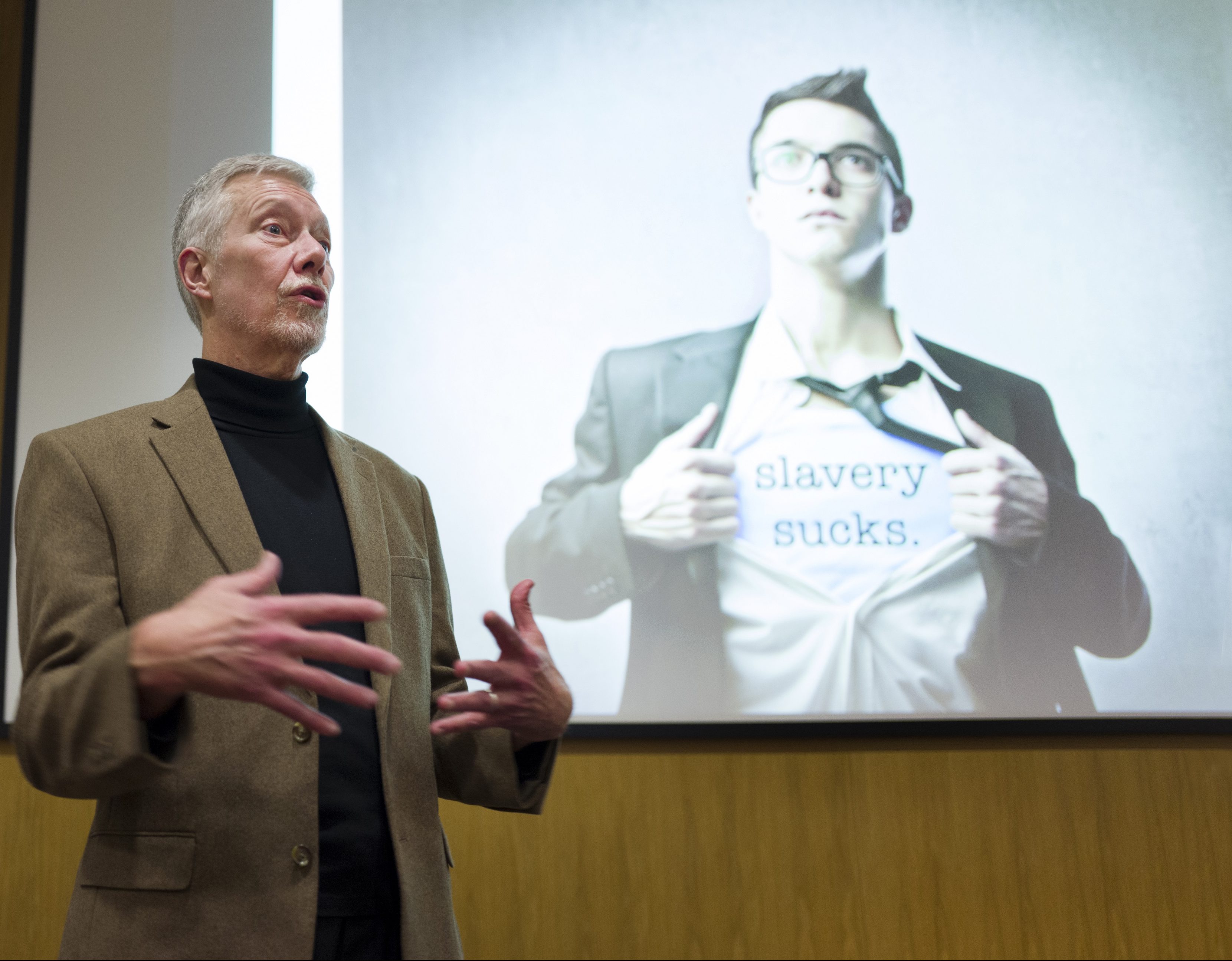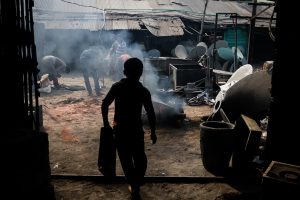
February 3, 2017, by Rob Ounsworth
Professor Kevin Bales: how science can help end slavery
There are almost 46m slaves in the world today – more than at any time in history. It’s a shocking statistic. Yet Kevin Bales, Professor of Contemporary Slavery in the School of Politics and International Relations, says we are at a tipping point.
Thanks to cutting-edge research, antislavery movements and campaigners have an unprecedented picture of the nature and prevalence of slavery, and armed with this data and the determination to bring about change, we have the very real prospect of eradicating this stain on human history forever.
In his inaugural lecture, Unlocking the Science of Slavery, Professor Bales drew on decades of experience of documenting the experiences of slaves across the world, collecting personal testimonies and data on the political, economic, social and cultural factors that lead to and influence slavery.
World’s largest cluster of rights and justice scholars
He said it was a “dream come true” to join The University of Nottingham and the world’s largest cluster of rights and justice scholars.
Professor Bales will be Research Director in the Rights Lab, one of the five world-leading Beacons of Excellence highlighted in the University’s refocused research strategy. This multidisciplinary group will tackle rights and justice issues. The Rights Lab has built the world’s first large-scale research agenda for ending slavery, which it takes as its first global challenge.
Professor Todd Landman, Pro-Vice Chancellor for the Faculty of Social Sciences, chaired the lecture. He will be the Executive Director of the new Beacon and works with Professor Bales on monitoring and evaluation techniques for slavery interventions.
Professor Bales, who was appointed a Companion of the Order of St Michael and St George (CMG) in the Queen’s New Year Honours for his services to the global antislavery movement, has advised governments around the world on trafficking and slavery policies.
Satellite technology maps slave camps
In his lecture, we learned that child slaves drying fish for pet food in Bangladesh are at risk of death from disease and are also preyed upon by Bengal tigers, displaced from their habitat by de-forestation.
Professor Bales discovered some of these camps through the use of satellite technology, and he said he was particularly excited by the prospect of similar collaborations with the Nottingham Geospatial Institute in helping map slavery in areas such as the Amazon. His research has explored the link between environmental degradation and slave labour.
We were also reminded that slavery exists in every country in the world – Professor Bales explained that the breakthrough application of multiple systems estimation (previously used to map atrocities in conflict zones) has helped reveal that there are up to 13,000 slaves in Britain, higher than previously thought.
Drive to become slavery-free city
Such insights from Nottingham’s research is informing Prime Minister Theresa May’s policy of putting Britain at the vanguard of the fight to end global slavery.
Closer to home, Professor Bales is a key supporter of Nottingham’s drive to become the UK’s first slavery-free city. Slavery is a global issue, he says, but the importance of community action cannot be over-estimated.
The lecture concluded with moving footage of freed slaves being reunited with their families – Professor Bales’ research has guided the rescue and rehabilitation of thousands of enslaved people.
His closing message to The University of Nottingham’s students and researchers: over to you – there are many obstacles to overcome, but our rigorous research can equip governments and campaigners around the world with the knowledge and policies to defeat slavery.
No comments yet, fill out a comment to be the first



Leave a Reply